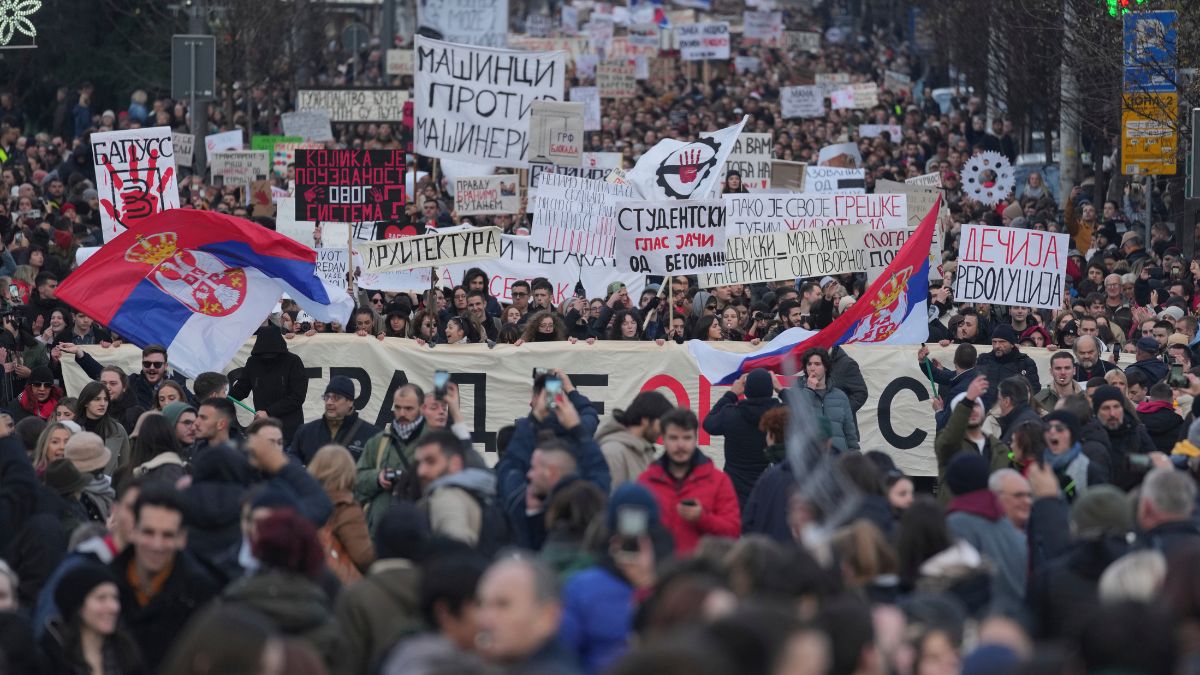Hundreds of university students gathered in Serbia’s capital on Wednesday (December 25) to demand accountability for a train station roof collapse that killed 15 people in the northern city of Novi Sad last month.
The students blocked a major intersection in Belgrade for 15 minutes before marching to the Supreme Public Prosecutor’s Office, where they symbolically left letters urging Chief Prosecutor Zagorka Dolovac to take action.
“Students expect you to fight for law and justice, without political abuse or corruption,” read one of the messages. Protesters chanted, “Fulfill the demands,” while waving banners featuring red handprints, as a symbol of their claim that authorities have “blood on their hands.”
Nationwide protests over tragedy
The November 1 incident, which occurred after a concrete canopy at the Novi Sad train station collapsed following renovation work, has sparked seven weeks of protests across the country. Fourteen people, aged 6 to 74, died at the scene, and a 15th victim succumbed to injuries weeks later.
Public outrage has been fuelled by allegations of corruption and substandard work on infrastructure projects, many of which involve Chinese state companies. Prosecutors have arrested 13 people in connection with the collapse, including a government minister, whose subsequent release has raised doubts about the transparency of the investigation.
Students lead the charge
Students have blockaded nearly all state university faculties for over a month, refusing to back down despite government promises of subsidies and housing loans for young people. Their protests have drawn widespread support from professors, farmers, actors, and others.
Last Sunday’s student-led demonstration in Belgrade was one of the largest in recent years. Police estimated attendance at 29,000, but an NGO specialising in crowd counts claimed the number was three times higher.
Authorities respond to pressure
Dolovac’s office responded Wednesday, inviting a student delegation to a meeting. However, the government’s response has largely focused on defusing unrest through economic incentives, with President Aleksandar Vucic promoting “favourable” loans for young people to purchase apartments.
Vucic, who has been accused of curbing democratic freedoms while formally pursuing European Union membership for Serbia, faces mounting criticism amid the unrest.
Students say their demands go beyond financial assistance, calling for accountability and systemic reform to prevent further tragedies. “This isn’t just about Novi Sad,” one protester said. “It’s about fighting corruption and building a better, safer Serbia.”
Impact Shorts
More ShortsWith inputs from agencies


)

)
)
)
)
)
)
)
)



